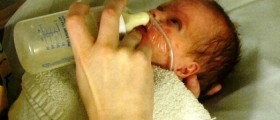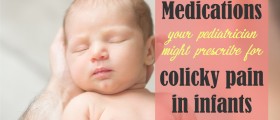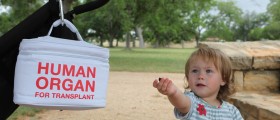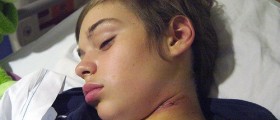
Babies who are up to 28 days old are called infants. Many of these babies experience different seizures and they usually point to some neurologic dysfunction. Prognosis and treatment of seizures in infants mainly depend on the causes of this condition, which makes diagnosis critical.
In general, neonatal (infant) seizures appear in babies only few days old, but in some patients they may occur later in life, especially during first 10 days of life. According to the statistic data, about 50% of all patients who had seizures as infants develop some type of seizures at some point of their life.
There is no proper statistic data about the incidence of seizures in infants, but doctors know that seizures appear more frequently in neonatal population than in children of any other age group. Some claim that 80 to 120 per 100.000 of newborn babies, younger than 28 days of life, experience benign neonatal seizures. Current medical knowledge knows no racial or sexual difference in development of this condition, so both baby boys and baby girls of any origin may be affected by benign infant seizures.
Some infant seizures may be associated with, physical and cognitive deficits, long-term medical problems and even with lethal consequences.
How and Why Infant Seizures Happen?
Scientists have discovered that seizures are result of synchronized depolarization of some large group of neurons in the brain. This happens because of excess of excitatory amino acid or neurotransmitter such as glutamate or when the brain lacks inhibitory neurotransmitter GABA (gamma amino butyric acid). Flow of sodium in and potassium out of the neurons in the brain may also be responsible for synchronization and seizures in newborns, as well as some hypoxic-ischemic encephalopathy.
Consultation and Treatment
To evaluate the seizures, parents will need help from neurologist. This specialist will also be able to evaluate EEG (electroencephalogram) and video EEG, provide proper monitoring for the baby and prescribe appropriate treatment.
Doctors disagree about the best course of treatment for these benign infant seizures. Most specialists advise prompt diagnosis and treatment and some believe this condition should be treated aggressively. EEG imaging should be able to provide information about the cause of the problem and whether it is epileptic or non-epileptic in nature.
Electrolyte imbalance is recommended to be taken care of intravenously (IV). When it comes to hypocalcemia, doctors advise caution to avoid scarring of subcutaneous tissue. Suspected metabolism dysfunction should be treated with IV solutions, but babies should not be fed, in order to avoid worsening of seizures. Only after all these problems have been resolved, doctors advise using anti-epileptics, preferably Phenobarbital or phenytoin in some cases.
















Your thoughts on this
Loading...